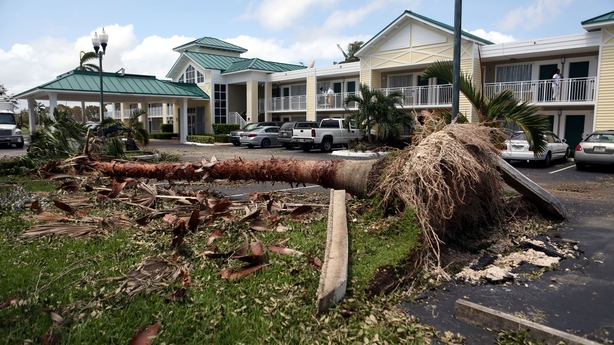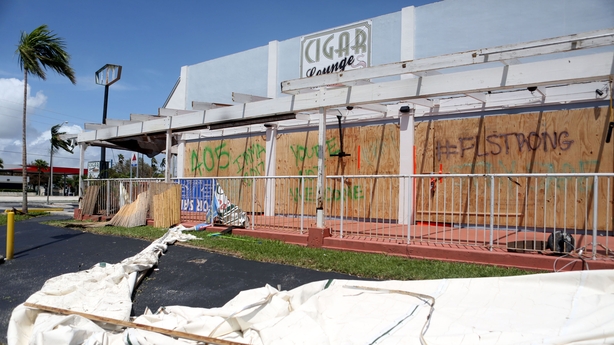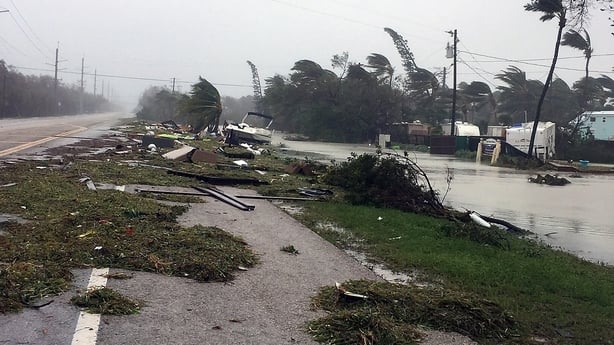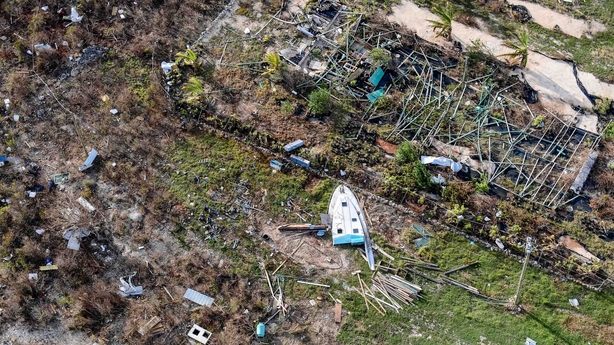Florida has allowed some residents to return to areas hammered by Hurricane Irma's high winds and storm surge, while the death toll rose in the second major hurricane to hit the United States this year.
Irma, which had rampaged through the Caribbean as one of the most powerful Atlantic hurricanes on record, was downgraded to a tropical depression yesterday. It will likely dissipate from this evening, the National Hurricane Center said.
At its peak the storm prompted evacuation orders for 6.5 million people in Florida, the largest evacuation in modern US history.
Florida Governor @FLGovScott says 60% of Florida still without power. 90% of homes in Florida Keys damaged or destroyed. #Irma
— Caitriona Perry (@CaitrionaPerry) September 12, 2017
Irma killed nearly 40 people in the Caribbean and at least six in Florida and Georgia.
A local Florida official said there had been more deaths yet to be reported, particularly on the Florida Keys, where Irma arrived as a Category 4 hurricane with sustained winds of up to 215km/h on Sunday morning.
Local authorities told around 90,000 residents of Miami Beach and from some parts of the Keys they could go home but warned it might not be prudent to remain there.
"This is going to be a frustrating event. It's going to take some time to let people back into their homes particularly in the Florida Keys," Brock Long, administrator of the Federal Emergency Management Agency, told a news conference.



FEMA was continuing to rescue people stranded by flooding around Jacksonville, in the state's northeast, he said.
Irma devastated several Caribbean islands en route to Florida. It destroyed about one-third of the buildings on the Dutch-ruled portion of St. Martin island, according to the Dutch Red Cross.
The storm was the second major hurricane to make landfall in the United States in a little more than two weeks when it roared over Key Cudjoe.
Hurricane Harvey plowed into Houston late last month, killing about 60 and wreaking some $180 billion in damage, largely through flooding.
Monroe County Commissioner Heather Carruthers said yesterday that people had been killed in the Keys, which have nearly 80,000 permanent residents, but she did not have a count on how many.
"We are finding some remains," she said in an interview with CNN. Video footage of the islands showed homes torn apart.
Several major airports in Florida that halted passenger operations due to Irma began limited service today, including Miami International, one of the busiest airports in the US.
More evacuation orders are likely to be lifted later today.
Utilities reported some 6.9 million homes and businesses were without electricity in Florida and neighbouring states and said it could take weeks to fully restore service.
Insured property losses in Florida from Irma were expected to run from $20 billion to $40 billion, catastrophe modelling firm AIR Worldwide estimated.
The remnants of Irma moved into Alabama today and were forecast to head into western Tennessee by this evening with maximum sustained winds of 40km/h.
100 prisoners escape on hurricane-hit British island
Meanwhile, a British junior minister has said that over 100 high-risk prisoners escaped in the British Virgin Islands during Hurricane Irma, as he raised the death toll in British territories to nine.
Alan Duncan told the British parliament: "We had a serious threat of a complete breakdown of law and order in the British Virgin islands (BVI).
"The prison was breached, over 100 very serious prisoners escaped," he said.
Mr Duncan said Royal Marines were deployed to cope with the threat but did not disclose how many prisoners had been recovered or how many were still at large.
"We have maintained and kept law and order on the BVI, which at one point, could have dramatically threatened the already unfortunate plight of those who had been hit by the hurricane," he said.

Britain's response to Irma has been criticised by some local inhabitants as too slow with some complaining about a breakdown of law and order and being left to fend for themselves.
Briton Claudia Knight said her partner Leo Whitting, 38, was stranded on the island of Tortola in the British Virgin Islands archipelago.
"Everyone's turned feral and no-one's going out without being armed... It's turning really nasty," she told the Press Association news agency.
"Leo carries a knife with him," she said.
But Mr Duncan said he "wholeheartedly and comprehensively reject the criticism".
"I think they are unjustified," he added.

